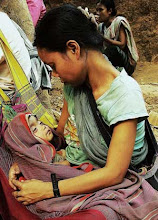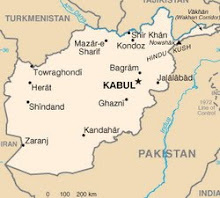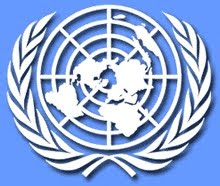 The State Department headed under Secretary of State Hillary Clinton released this week the religious freedom violator blacklist designated by the Bush administration in January before leaving office.Former Secretary of State Condoleezza Rice re-designated the same eight countries named in 2006-Burma, Eritrea, Iran, North Korea, the Peoples Republic of China, Saudi Arabia, Sudan, and Uzbekistan-as “Countries of Particular Concern” (CPC) on Jan. 16.The list was not made available until this week after an inquiry by the U.S. Commission on International Religious Freedom (USCIRF).Being named a CPC is the worst label a country can receive from the United States for religious freedom violations. The designation can result in a wide range of U.S. actions against the country in attempt to improve its religious freedom record, including sanctions.USCIRF, a bipartisan government agency that monitors religious freedom status around the world, was critical of the latest CPC list for not adding any of the countries it had recommended. It also voiced dissatisfaction that although Saudi Arabia and Uzbekistan were designated CPC, the Bush administration had given them waivers.USCIRF had recommended in its 2008 Annual Report for the State Department to add Pakistan, Turkmenistan, Vietnam, and Iraq to the eight countries already designated as CPCs.“The Commission is disappointed that Secretary Rice refused to designate any new countries and that waivers were granted for both Uzbekistan and Saudi Arabia,” said Felice Gaer, USCIRF chair, in a statement. “Religious freedom conditions in Uzbekistan and Saudi Arabia are appalling and a specific U.S. government response is required.”Saudi Arabia is known to practice the strictest form of Islam, Wahhabism, and stands out among Islamic states for its extremely harsh laws against all religions other than the Wahhabi branch.Investigation have also shown that it spends millions each year disseminating Islamic teachings - including religious literatures that teaches students to hate “infidels,” or non-believers – around the world.The country also has severe human rights abuses including a legal system with punishments such as flogging and amputation. Saudi Arabia has been a CPC since 2004, but has received a waiver, or essentially a pass, each year.USCIRF had sent a letter to Secretary of State Hillary Clinton in February expressing the Commission’s concern, including the State Department’s failure to designate CPC’s. The State Department has not released a new CPC list since 2006. The list released this week occurred after the Commission’s inquiry.“State Department efforts to negotiate with certain countries to bring about improvements in religious freedom certainly might be an appropriate reason for delaying CPC designation, but the Commission concludes that the State Department should have acted years ago in the case of a number of the countries our Commission recommended for CPC designation, under our statutory authority,” Gaer said.“As it reviews the previous Administration's CPC designations, we hope the Obama Administration will recognize the added value that CPC status can bring to American public diplomacy on human rights.”The International Religious Freedom Act of 1998 (IRFA) requires an annual State Department review by Sept. 1 of each year. Although the IRFA does not set a specific deadline for CPC designations, decisions are based on the annual review and therefore is expected to come soon after, the Commission pointed out.USCIRF noted it is “problematic” for the State Department to release a CPC list after a more than two-year delay.
The State Department headed under Secretary of State Hillary Clinton released this week the religious freedom violator blacklist designated by the Bush administration in January before leaving office.Former Secretary of State Condoleezza Rice re-designated the same eight countries named in 2006-Burma, Eritrea, Iran, North Korea, the Peoples Republic of China, Saudi Arabia, Sudan, and Uzbekistan-as “Countries of Particular Concern” (CPC) on Jan. 16.The list was not made available until this week after an inquiry by the U.S. Commission on International Religious Freedom (USCIRF).Being named a CPC is the worst label a country can receive from the United States for religious freedom violations. The designation can result in a wide range of U.S. actions against the country in attempt to improve its religious freedom record, including sanctions.USCIRF, a bipartisan government agency that monitors religious freedom status around the world, was critical of the latest CPC list for not adding any of the countries it had recommended. It also voiced dissatisfaction that although Saudi Arabia and Uzbekistan were designated CPC, the Bush administration had given them waivers.USCIRF had recommended in its 2008 Annual Report for the State Department to add Pakistan, Turkmenistan, Vietnam, and Iraq to the eight countries already designated as CPCs.“The Commission is disappointed that Secretary Rice refused to designate any new countries and that waivers were granted for both Uzbekistan and Saudi Arabia,” said Felice Gaer, USCIRF chair, in a statement. “Religious freedom conditions in Uzbekistan and Saudi Arabia are appalling and a specific U.S. government response is required.”Saudi Arabia is known to practice the strictest form of Islam, Wahhabism, and stands out among Islamic states for its extremely harsh laws against all religions other than the Wahhabi branch.Investigation have also shown that it spends millions each year disseminating Islamic teachings - including religious literatures that teaches students to hate “infidels,” or non-believers – around the world.The country also has severe human rights abuses including a legal system with punishments such as flogging and amputation. Saudi Arabia has been a CPC since 2004, but has received a waiver, or essentially a pass, each year.USCIRF had sent a letter to Secretary of State Hillary Clinton in February expressing the Commission’s concern, including the State Department’s failure to designate CPC’s. The State Department has not released a new CPC list since 2006. The list released this week occurred after the Commission’s inquiry.“State Department efforts to negotiate with certain countries to bring about improvements in religious freedom certainly might be an appropriate reason for delaying CPC designation, but the Commission concludes that the State Department should have acted years ago in the case of a number of the countries our Commission recommended for CPC designation, under our statutory authority,” Gaer said.“As it reviews the previous Administration's CPC designations, we hope the Obama Administration will recognize the added value that CPC status can bring to American public diplomacy on human rights.”The International Religious Freedom Act of 1998 (IRFA) requires an annual State Department review by Sept. 1 of each year. Although the IRFA does not set a specific deadline for CPC designations, decisions are based on the annual review and therefore is expected to come soon after, the Commission pointed out.USCIRF noted it is “problematic” for the State Department to release a CPC list after a more than two-year delay.By Ethan Cole
Christian Post Reporter
Christian Post Reporter
As in the days of Noah...


























.bmp)
No comments:
Post a Comment